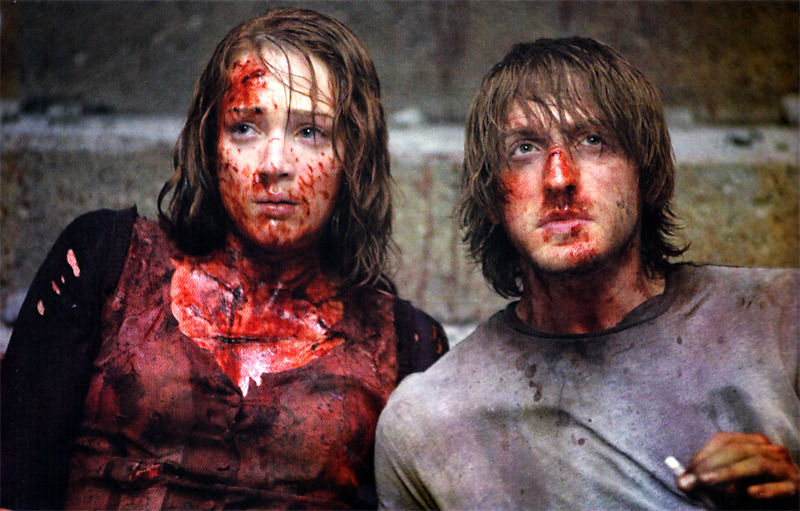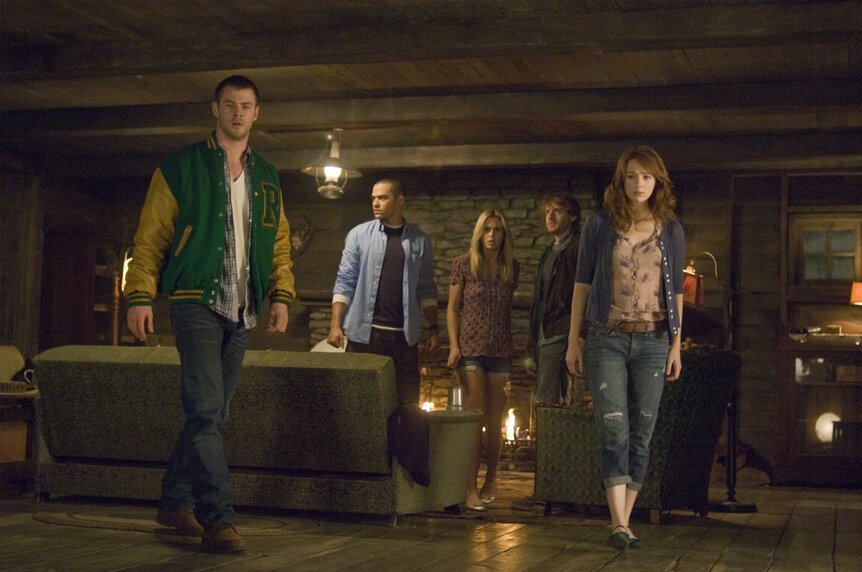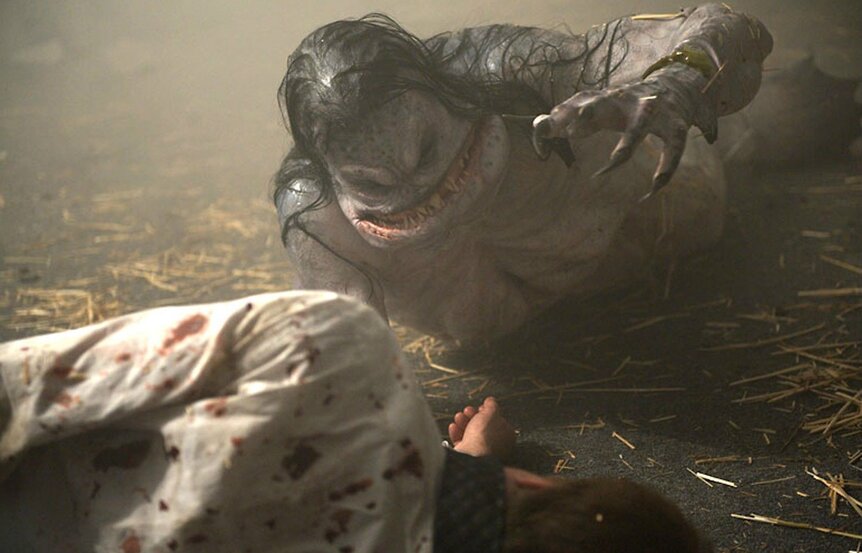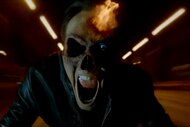Create a free profile to get unlimited access to exclusive videos, sweepstakes, and more!
WTF Moments: The perfectly apocalyptic end of The Cabin in the Woods

The end of The Cabin in the Woods is also the end of the world.
That's not really the WTF bit though. Horror movies often end with the zombies eating everyone or with the monsters triumphant. The WTF part is the way the film makes the annihilation of everyone, and of you (yes, you!) in particular, look like it might be a decided improvement on the world we've got.
The Cabin in the Woods is, famously, an exercise in meta-horror. Produced by Joss Whedon, directed by Drew Goddard, and written by both, the 2011 movie looks at first like a standard slasher film. A bunch of college students go off to a cabin vacation, where they will presumably be slaughtered.
But you quickly learn that these young people's fate isn't random. Instead, they're being manipulated by bored bureaucrats who are part of a shadowy government conspiracy. The goal of the conspiracy is to appease terrible, monstrous, underground-dwelling, Lovecraftian gods known as the Ancient Ones. The Ancient Ones will annihilate the earth and feed on its human inhabitants unless they receive a regular blood sacrifice.
The monstrous gods, then, are a kind of stand-in for the viewers, who want to see horror movie carnage. The bureaucrats, meanwhile, are the filmmakers, setting up their characters for hideous death by (in this case) zombie hillbillies.
The twist on top of the twist, though, is that the ritual goes awry. Marty Mikalski (Fran Kranz), the stoner kid, manages to escape death along with the Final Girl, Dana Polk (Kristen Connolly), whose death isn't necessary for the ritual (the Final Girl just has to suffer). The two of them invade the bureaucratic compound and let loose all the monsters reserved for the horror rituals (including a Merman who vents blood through his blowhole, because why not?).
Marty survives... which means the world doesn't. Since the sacrifice isn't completed, the world ends. The compound starts to shake, the music swells, the ground starts to heave apart, and then you shift to an outside view, where the woods around the cabin tremble and shake. A giant hand bursts through the house. It flexes and then rushes towards the camera, which goes black. That's the end of everything.
Usually, the destruction of the world by an inhuman ancient evil wouldn't be a happy ending. But Cabin in the Woods makes you kind of root for the hand.
The bureaucrats who run the ritual are callous jerks; they take bets on which monster will be unleashed to kill the kids. They hold a champagne celebration when they think the ritual is completed, indifferent to the ongoing suffering of the Final Girl in the background. You don't want them to win. But at the same time, they're just like you, the audience, enjoying the horror film. You end up essentially rooting for yourself to get punished for enjoying the sight of people getting punished.
In an interview with Filmmaker, Goddard said that for The Cabin in the Woods, he was interested in the question of "why do we feel this need to marginalize youth on screen? Why do we feel this need to idealize youth, and then slaughter them?" The final scene goes beyond exploring the love of slaughtering young people, though, and interrogates the love of slaughtering everybody.
We watch people suffer in horror films as entertainment — and we watch them suffer on the news as well. We root for people to be punished for their sins. Throw them into jail to rot, we say. Give them the chair. We have a world in which we desire violence, and violence is provided to us.
As they wait for the Ancient Ones to rise, Marty and Dana muse that maybe that kind of world deserves to be destroyed.
People are horrible, and they revel in destruction and death. But even as they recognize humanity's essential awfulness, Dana and Marty still want to revel in destruction and death too. They want to see the giant evil gods shatter the earth and lay waste. It would be a fun weekend!
They don't get to see it, though, and neither do we. The world trembles, the giant hand reaches for us, and then there's just darkness. In part, that's a finger-(or hand-) wagging tease. The movie is about how we have this gross desire to witness apocalypse, and so it refuses to show us the apocalypse. You don't get to see yourself annihilated because you'd enjoy it too much.
You also don't see it, though, because the movie simply can't imagine it. A horror film shows you human suffering and death; that's what a horror movie is. Our own sense of good and order is soaked in blood and murder; maybe the giant evil gods can make a better post-revolutionary utopia. But if they can, it's beyond our understanding.
What would it look like for inhuman humanity to give something else a chance? A world beyond horror: We don't know WTF that is.




























